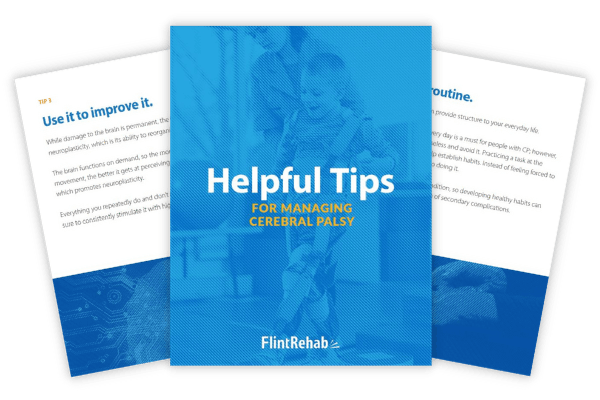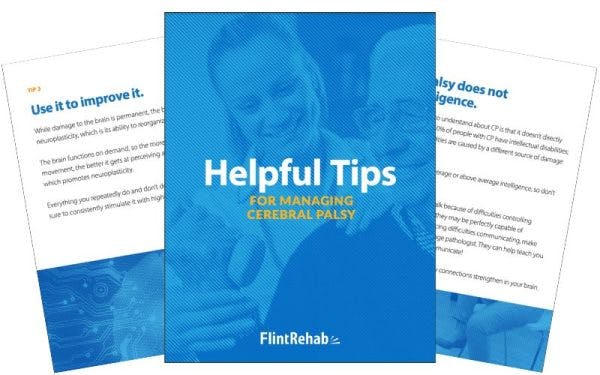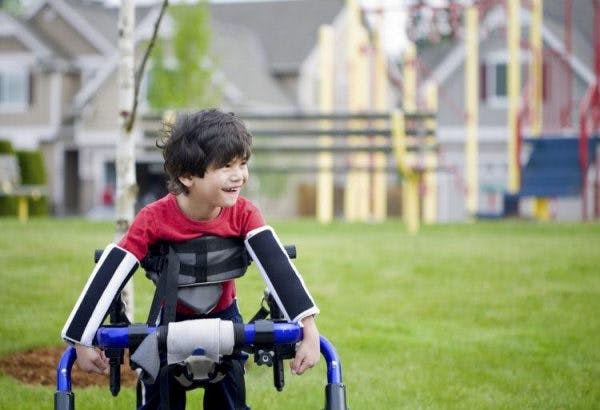Individuals with cerebral palsy are more likely to develop heart problems in adulthood than those without. Therefore, it is essential to be proactive and take preventive measures to help reduce the risk.
Although heart problems and cerebral palsy are not directly related, cerebral palsy-related motor impairments can contribute to a decline in heart health.
To help you understand the link between cerebral palsy and its effects on the heart, this article will discuss:
- Can cerebral palsy cause heart problems?
- Helpful tips to reduce the risk of heart problems in individuals with cerebral palsy
Can Cerebral Palsy Cause Heart Problems?
Cerebral palsy is a motor disability that affects one’s movements. Motor impairments caused by cerebral palsy can significantly limit one’s mobility. Consequently, limited physical activity can put individuals with cerebral palsy at risk for developing heart problems, especially as they age into adulthood.
Poor heart health will affect all organ systems. The heart pumps oxygen-rich blood throughout the body, and oxygen fuels cellular activity, which allows the body to function efficiently. Vitamins, minerals, glucose, and other essential nutrients are also carried in the bloodstream throughout the body.
Without sufficient blood supply, organ systems will start to dysfunction and ultimately shut down.
This study found that compared to the general population, adults with cerebral palsy were 2.6x more likely to develop heart failure, 1.6x more likely to develop hypertension, and 2.3x more likely to develop ischemic heart disease.
Fortunately, with the right management interventions, the risk of heart complications can be reduced. In the following section, we’ll discuss 7 tips to reduce the risk of heart problems in individuals with cerebral palsy.
7 Helpful Tips to Reduce Risk of Heart Problems in Individuals with Cerebral Palsy
Many heart problems can be prevented by adopting healthy lifestyle behaviors. While the motor impairments caused by cerebral palsy can make it difficult for individuals to be physically active, individuals should still make an effort to incorporate movement and other healthy habits into their daily routines.
Below, we’ll discuss several ways to promote cardiovascular health.
1) Incorporate More Physical Activity into Your Daily Routine

Due to restricted mobility, increasing physical activity levels may be challenging for individuals with cerebral palsy.
A physical therapist can help assess your abilities and create a personalized workout routine. They will also guide you through the exercises and provide assistance as needed.
Individuals with severe motor impairments may benefit from passive range of motion exercises. Passive range of motion refers to when the client does not exert any energy to perform the movement. Instead, a therapist or caregiver will move the individual’s body through their entire range of motion for them. This helps promote circulation and stimulate the brain.
Although a formal exercise routine is a great way to promote heart health, any form of physical activity is better than being sedentary. Activities such as swimming, playing at a playground, and catching bubbles can be more engaging for children and encourage them to be more active throughout the day.
There are also ways to adapt activities to make them more physically demanding if you’re up for a challenge, such as adding arm or leg weights or sitting on an exercise ball to engage the core. An occupational therapist can help you further explore modification options to make activities easier or more difficult depending on your abilities. There are plenty of ways to make physical activity fun and motivating.
2) Maintain a Healthy Weight

Maintaining a healthy weight is essential for promoting heart health because increased body weight can cause blood pressure to rise.
In fact, being overweight or obese is the most commonly reported risk factor among individuals with cerebral palsy that develop cardiovascular disease.
When you carry too much weight, the body has to work harder and expend more energy to perform tasks. Being overweight can also make it more difficult to be motivated to participate in physical activities, as it requires more effort.
By staying within a healthy weight range, you can reduce strain on the body and delay fatigue.
3) Consume a Nutritious Diet

Eating nutritious foods is a great way to manage your weight, fuel the body, and maintain overall health. Try to eat whole, nutrient-dense foods like vegetables and fruits.
Fatty, greasy foods can increase cholesterol and contribute to heart problems. Additionally, reducing salt consumption can also help lower high blood pressure.
4) Limit Alcohol Intake

Heavy drinking can lead to increased blood pressure, heart rate, and weight gain, which are all major risk factors for heart problems.
Try to limit yourself to 1 or 2 drinks a day to avoid exhausting the heart.
5) Quit Smoking

Inhaling the chemicals in tobacco can contaminate your blood cells and cause damage to your blood vessels and heart.
Smoking can alter your blood chemistry and lead to atherosclerosis. Atherosclerosis is the buildup of plaque in your arteries, which limits blood flow. This can eventually result in clogged or ruptured arteries. It can even lead to a heart attack or stroke.
Try to avoid being around others when they are smoking as well, as second-hand smoke can also contribute to heart disease.
6) Manage Stress

Everyone responds to stress differently. Some people overeat, some people smoke, some people drink, some people stop exercising.
When you’re stressed, your body releases hormones like cortisol and adrenaline, which increase your heart rate, blood pressure, hunger, and alertness.
While small amounts of cortisol are necessary to get you through the day, chronic stress can expose you to consistently high levels of cortisol. This can cause conditions associated with poor heart health such as:
- weight gain
- fatigue
- anxiety
- sleeping problems
- high blood pressure
Some healthy ways to manage stress include getting a massage, meditating, exercising, and listening to soothing music.
Developing a healthy stress management strategy that works for you can help relieve high levels of stress, and even prevent you from becoming overly stressed.
7) Monitor Your Blood Pressure

High blood pressure (hypertension) can be a result of poor lifestyle choices like an unhealthy diet, lack of physical activity, heavy alcohol consumption, smoking, and high stress levels. The increased pressure exerts additional strain on the cardiovascular system, which forces the heart to work harder to pump blood throughout the body. Over time, this can overwork the heart and cause heart failure.
Regularly monitoring your blood pressure can help keep you accountable for your behaviors and encourage you to adopt healthier ones to alleviate excess strain on the heart.
Understanding the Link Between Cerebral Palsy and Heart Problems
Cerebral palsy is not directly related to heart problems, but individuals with CP are at an increased risk for developing heart problems because of their physical limitations.
Now that you’re aware of the link between cerebral palsy and heart problems, you can be proactive about making healthy lifestyle choices to promote the wellbeing of your cardiovascular system.










